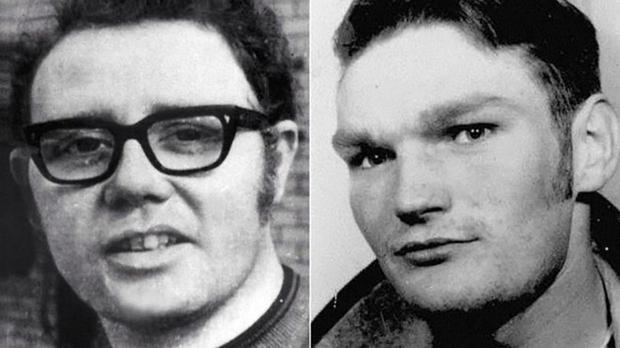
Soldier F was charged with the murder of William McKinney (left) and James Wray on Bloody Sunday
Thirteen people died when members of the British Army’s Parachute Regiment opened fire on civil rights demonstrators on 30 January, 1972. A 14th person died later.
Soldier F, who cannot be named for legal reasons, is charged with the murders of James Wray and William McKinney and five attempted murders.
The Public Prosecution Service wants to use written and oral statements made by other soldiers at the Widgery Inquiry into the killings in 1972 and to the Royal Military Police in which they said they saw Soldier F firing at civilians.
At a court hearing in May, a PPS lawyer applied to have the hearsay evidence from a number of living and deceased soldiers admitted in the committal proceedings.
The lawyer said there was case law that hearsay evidence should be admissible “if it is in the interests of justice”.
District Judge Ted Magill is due to rule on the application in Derry Magistrates Court this morning.
If he rules that the hearsay evidence is admissible, the committal hearing against Soldier F will be timetabled to conclude at a later date.
If the judge rules that the evidence is inadmissible, it is likely the PPS will request time to consider the full details and its response.
It is also possible the judge could admit some of the hearsay evidence but exclude other parts.
The prosecution of Soldier F recommenced in September last year after the High Court overruled a hugely controversial decision by the PPS to drop the charges.
Prosecutors announced in July 2021 that proceedings were ending following the collapse of a murder trial against two other former soldiers, referred to as A and C.
Tags:




